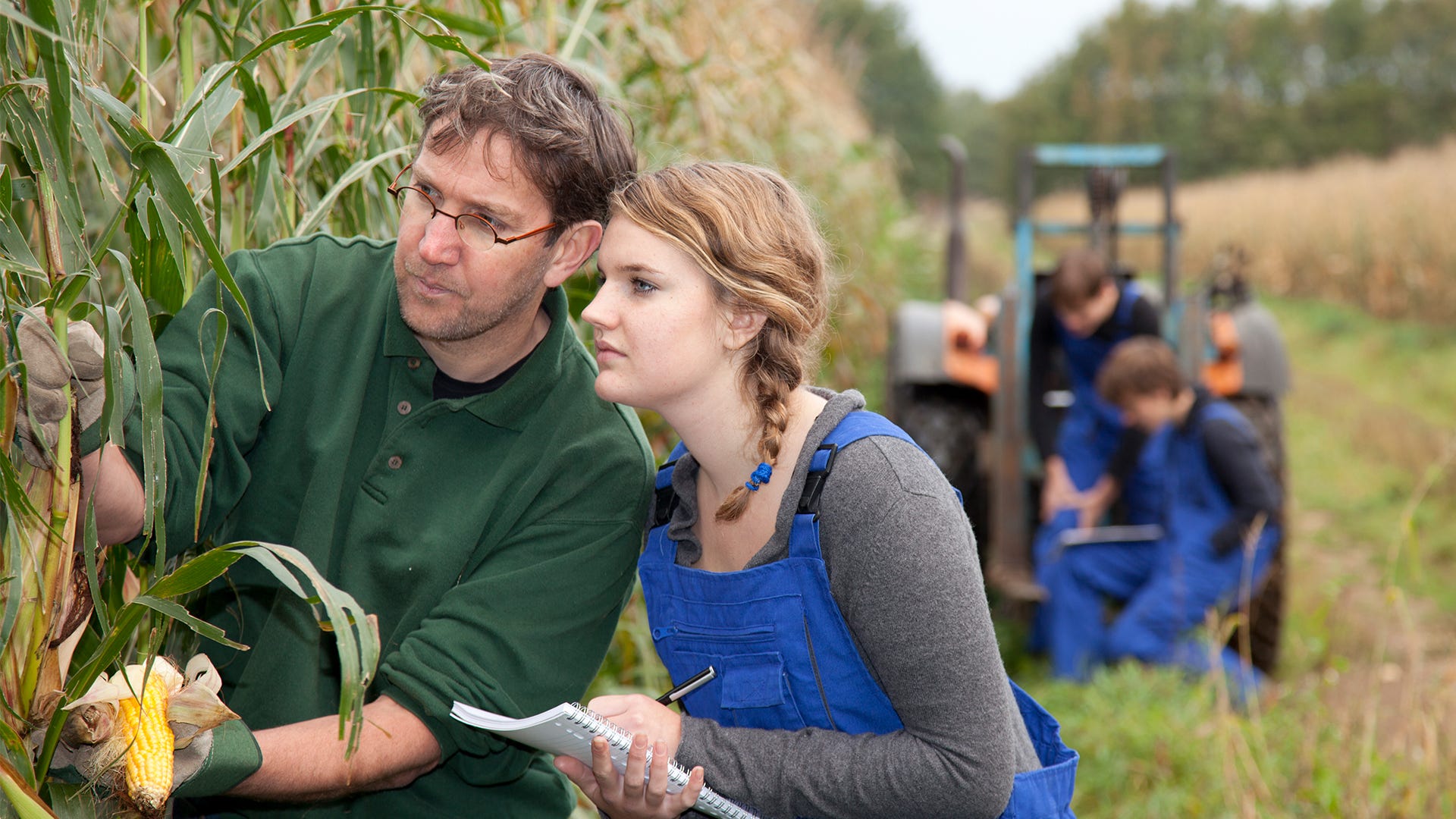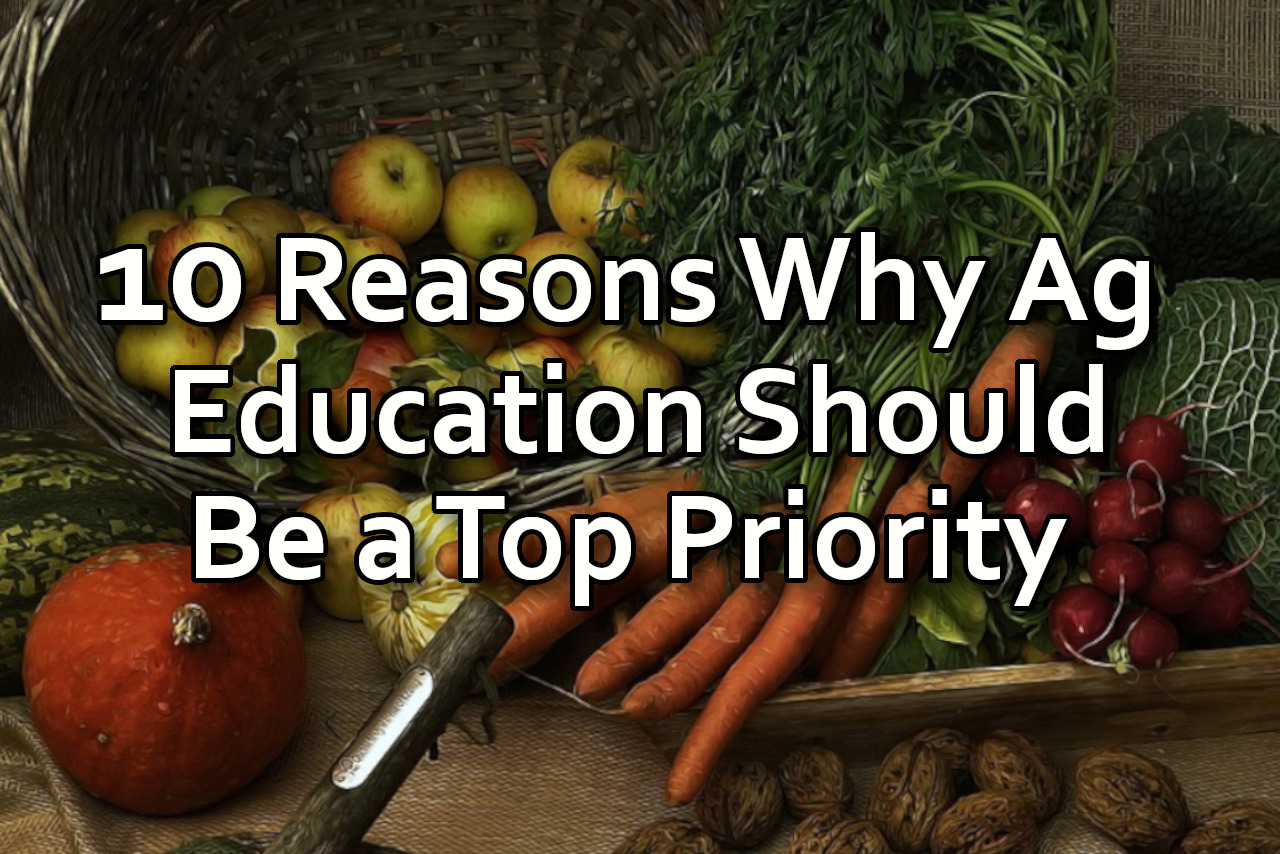Ag education is important because it provides students with valuable skills and knowledge about agriculture, sustainability, and food production. Through ag education, students learn the importance of agricultural practices and develop a strong understanding of our interconnected world and the impact of agriculture on our daily lives.
By actively engaging in ag education, students acquire practical skills for their future careers and gain a greater appreciation for the importance of agriculture in feeding and sustaining our growing population. Ag education also promotes critical thinking, problem-solving, and entrepreneurial skills necessary for a sustainable future.
The Importance Of Agricultural Education
The Importance of Agricultural Education
Agricultural education plays a vital role in cultivating the next generation of farmers. It equips individuals with the knowledge and skills necessary to sustainably produce food and promote agricultural innovation.
One of the major benefits of ag education is enhancing food security and sustainability. By educating farmers about modern techniques and practices, we can ensure a consistent and adequate supply of food for the growing population. This education also promotes sustainable farming methods, reducing the environmental impact and preserving natural resources.
Agricultural education not only benefits individual farmers but also promotes rural economic development. By empowering farmers with the knowledge to improve their productivity and profitability, it contributes to the overall economic growth of rural communities. It creates opportunities for employment, entrepreneurship, and investment, thus driving the local economy forward.

Credit: www.zarebasystems.com
Benefits Of Ag Education For Students
Ag education has numerous benefits for students, helping them develop a strong work ethic and responsibility. By learning about agriculture and participating in related activities, students gain a sense of responsibility towards their work and develop a diligent work ethic that can be applied in various aspects of their lives.
Moreover, ag education plays a significant role in fostering environmental stewardship and sustainability. Students learn about the impact of agriculture on the environment and the importance of sustainable practices. This knowledge helps them become more conscious of their actions and encourages them to make environmentally friendly choices.
Additionally, ag education equips students with practical skills for future careers in agriculture. They gain hands-on experience in areas such as farming techniques, animal husbandry, and agronomy. These skills not only prepare them for potential careers in agriculture but also provide them with invaluable knowledge about food production and security.
The Role Of Agricultural Education In Modern Society
Ag education plays a crucial role in modern society by addressing global challenges in food production, bridging the gap between urban and rural communities, and harnessing technological advancements in agriculture. In order to meet the growing demand for food, agricultural education equips individuals with the knowledge and skills needed to improve food production. By learning about sustainable farming practices, students and professionals can develop innovative solutions to global challenges such as climate change and population growth.
In addition to food production, ag education also helps in bridging the gap between urban and rural communities. It promotes understanding and collaboration between these communities, allowing urban populations to better appreciate the importance of agriculture and rural areas. It also provides opportunities for students to gain hands-on experience through agricultural programs and community engagement. This not only strengthens the connection between urban and rural communities, but also fosters economic development in rural areas.
Furthermore, ag education plays a vital role in harnessing technological advancements in agriculture. With the increasing integration of technology in farming practices, it is essential for individuals to learn about precision agriculture, smart farming, and other innovative techniques. By staying updated with the latest advancements, ag education ensures that farmers, researchers, and technicians can effectively utilize technology to enhance crop yields, reduce resource consumption, and improve overall sustainability.
Conclusion
It’s clear that ag education plays a vital role in shaping the future of our society. By equipping individuals with the knowledge and skills necessary for sustainable agriculture practices, we pave the way for a more efficient and productive industry.
Moreover, ag education fosters an appreciation for agriculture, encouraging new generations to pursue careers in this essential field. As we continue to face challenges such as food security and environmental sustainability, investing in ag education becomes even more crucial. Let’s recognize its importance and prioritize its integration into our education systems.







